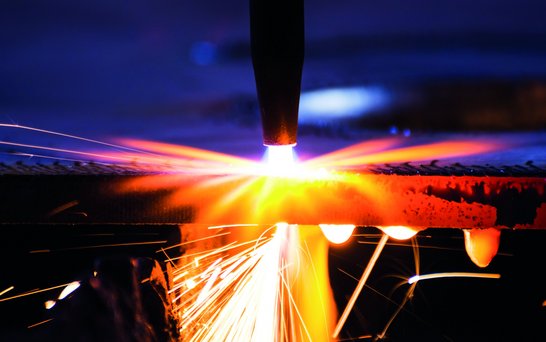Calcium carbide for acetylene production
Alzchem is producing Calcium Carbide for over 100 years.
Calcium Carbide is obtained by a reaction of lime and coke in an electric arc furnace at temperatures of around 1,800 to 2,100 °C.
Calcium Carbide is of strategic importance to Alzchem as the starting material for the NCN chain (Calcium Carbide/Calcium Cyanamide chain). Starting from Calcium Carbide, a variety of refined products are manufactured at a total of 5 production sites. Whether fertilizers, specialty chemicals or food supplements for human or animal nutrition, Calcium Carbide forms the basis.
In the metallurgical sector, Calcium Carbide is used not only in primary and secondary metallurgy but also in the production of acetylene.
Acetylene (C2H2) is ideally suited as a universal fuel gas. Due to its special physical and chemical properties, it achieves the highest flame temperature, ignition speed and flame output. It is therefore the most efficient fuel gas for welding and cutting.
It is obtained by the reaction of Calcium Carbide (CaC2) with water (H2O), which produces acetylene (ethine) and hydrated lime (Ca(OH)2).
In order to guarantee the availability of Calcium Carbide at all times, Alzchem produces with a total of 3 electric arc furnaces at 2 locations in Europe. With this redundant production of Calcium Carbide, we can guarantee our customers the highest level of delivery security and reliability.
A constantly high and stable product quality as well as the organization of logistics with partly own Calcium Carbide containers and rail wagons are part of Alzchem's service.
Alzchem offers the filling of customers' own containers as well as the shipment of Calcium Carbide in convenient 100 kg drums.

